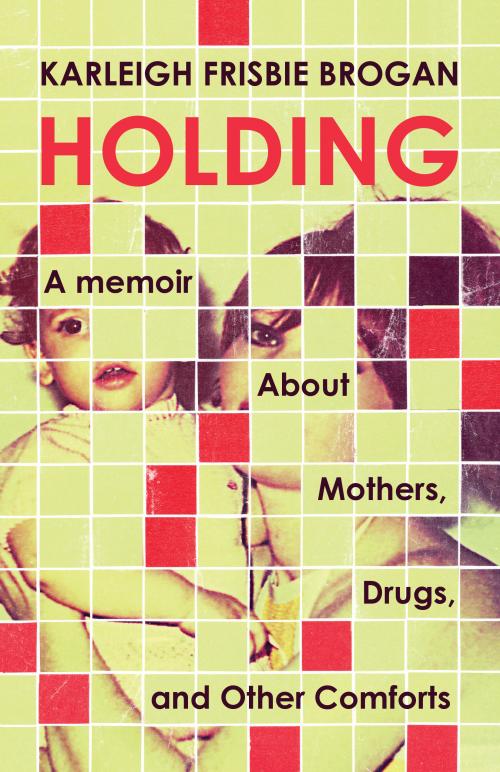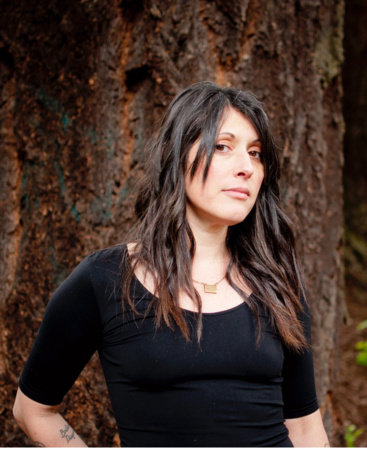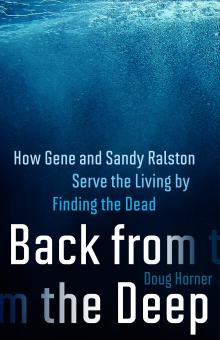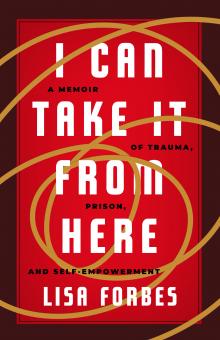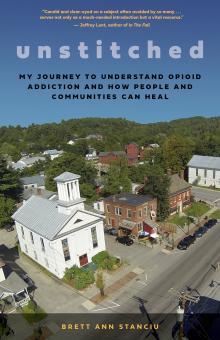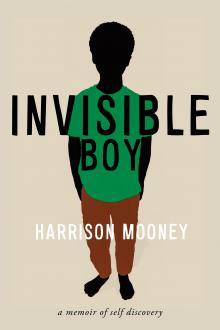Excerpt
Author’s Note
The events in this book take place, in large part, between the years of 1997 and 2003. As is the nature of memoir, the book does not chronicle every incident that occurred during that six-year span and instead culls and curates distinct moments that serve the story and the larger message I am attempting to convey.
Though my memory is vivid and extensive (a friend calls me the steel trap), there is no way I have it all right. Memories are formed in the matrix of our own emotions and opinions — they are subjective and fallible, slightly reconstructed with every recollection. I rely, in part, on interviews with Glorianne and my mother, conversations with friends and family members, photographs, journal entries, and other ephemera I’ve saved or found. I use these sources to flesh out and reanimate the memories that have stayed with me all these years, the ones that have branded my gray matter and have shaped me in significant ways.
In an attempt to keep the dialogue as true as possible, I re-created it using the habitual language of each individual. Some names have been changed to protect these identities. There are no composite characters.
Part 1: Mothers
Chapter 1: Eternal Substance
Holding an empty gas can, I scuffed across the service station’s hot asphalt, approached every truck that tripped the dinger, every dusty windshield and sun-ruined hood. I had a story — one about my car going empty on the 101 as I was driving to see my mom, sick in a hospital in another county. I had my red plastic prop. Had pigtails that made me teen. Had puffy hands, fingernails caked in dirt and glitter. My breath was bad, and my jeans rode pubic-bone low.
Men were easier. Especially when I tied bows in those pigs and rubbed a magazine on my wrists. They either dumped nickels and dimes from their ashtrays into my open palms or told me to fuck off. I spooked women, though. They scanned me out of the sides of their eyes and snapped their heads away when I neared, glimpsing invisible wristwatches. “I’m sorry,” they’d say. They recognized the wrong of me. That unfurling re-rolled, pretend proper with a whiff of rot, Estée Lauder Pleasures notwithstanding.
The day before, I’d worked the Costco lot. Twenty bucks in two hours. But I liked more the shade of the Valero station, its turquoise canopy that reminded me of a swimming pool. Its relief from the staring white sun. The gas station had a grassy curb with a miniature palm tree that looked like a pineapple. It had passers-through who didn’t recognize me from yesterday. Who only knew Santa Rosa as a ten-exit town with car dealerships and a couple of Denny’s.
The view from the highway deceived. People who lived there said it was heaven on earth with its ancient oak trees and mist-draped mornings and warm, fruit-bearing climate. They’d recite some ode, some Mark Twain quote. Others said it was an overpriced suburban shithole overrun with gang members and Section 8 housing and big-box stores. With drug addicts.
The heroin I did then, in 1997, in California, when I was twenty-one years old, was cooked in hidden kitchens, stirred in big pots with broom handles, cut with coffee, with shoe polish and dirt. It was formed into bricks, gleaming and oily and reeking of vinegar. I bought little chunks of it, taffy-wrapped in scraps of Safeway bag. That heroin is becoming extinct. It’s now laced with fentanyl — strong, cheap, synthetic, and transmutable. It can’t be spotted by helicopter like so many hectares of poppies. It doesn’t require sun and water, nor the seasonal workers who scrape wounded pods with Jumex cans, collecting magic goo for mere pennies. Fentanyl is lab-born, its compounds can be scrambled, mix-and-matched, made into stronger analogs. A million flowers within a single grain of sand, over a million deaths from the start of this book to its end.
It had been almost four hours since my last shot, and the heavy emptiness began to settle in my bones. Cussing under my breath, I forced smiles and muttered pleas to everyone who walked past where I sat on the curb. “Have a good day,” I’d say to pairs of shoes.
The pain of withdrawal can’t be described as stabbing or burning or aching or dull. It’s not something you can clutch or cradle or put a bag of frozen peas on. It’s an absence that feels like there’s nothing left to feel, an inky sadness that smears the sunniest day. It’s like in drowning dreams when you plunge into a body of water and can’t find the surface in time. In that murky, light-swallowing green, panic gives way to resignation, to the reflex of breath that fills lungs with lake, with death. What feels like survival is, in fact, demise.
A Volvo pulled up to a pump. It was brown and boxy. Had dried flowers on the dash, beads dangling from the rearview mirror, and a faded bumper sticker that reminded tailgaters to practice random acts of kindness. A man, thirties, got out of the passenger side and scurried into the mini mart. I walked up to the car and tapped on the glass. I saw the woman’s hair first — glossy and middle-parted, tucked behind an ear as she studied a road map.
“Hey sorry,” I said, hands steepled.
Turning down the stereo, she looked at me with a face as open as a child’s. She listened intently as I delivered my pitch, her brow pinching above the rim of her glasses. I told her about my stalled car, my hospitalized mama, my temporary unemployment. The lies felt like a pile of dead branches in my mouth. I yammered on, believing I could talk the story into truth.
The woman rummaged through her purse, extracted a couple of dollars from its depths, and handed them to me. “Swear I had more,” she said, still digging. The man returned carrying a bag of ice over his shoulder, his flip-flops snapping, his gum, too.
“Hey, honey?” the woman asked, stepping out of the car, touching her glasses. “Got a few extra bucks? Her car went empty on the highway.”
“How ’bout I just fill that thing up?” he asked, glancing at my gas can. He raised his eyebrows, catching my eye in our shared secret. “I’ll drive you to your car, even.” His gum chewing got excited.
“I’m good,” I said.
He shook his head. “Yeah. That’s kinda what I thought.”
The woman said his name in a tone that both scolded and pled. “Zack!” Maybe it was “Luke!” or “Dick!”
“She’s a junkie,” Dick said.
“I’m not a junkie,” I barked. “Asshole.”
I was cleaved in two. The enraged half was also the hurt half, my default reaction to even the smallest suggestion of doubt. It vibrated red and hot, my brain switched to off. How dare this complete stranger in his easy Flojos challenge the image I kept of myself. How dare he know exactly who I was despite my best efforts to conceal it. Didn’t I look honest in my petally blouse, a tiny Jesus cross around my neck? Didn’t I speak politely enough?
The other half was the hurt half too, but the hurt was a different kind. It was the hurt that came from hurting. It searched for eyes, made wordless apologies, tried to find ways back in to closed faces. I wanted to reassure the woman with the map and the glasses that our brief interaction wasn’t a sham, that my dishonesty was honest in its desperation, its purpose. Her handout wasn’t bankrolling my good time; it was keeping me alive. “Mama” was just a metaphor.
I had convinced myself that each exchange came with a tacit wink and nod. That every charitable dupe was savvier than they appeared, intentionally suspending disbelief, even if unconsciously. My story was no more than a mark of effort — the magician’s flourish, the eight-hour shift, the expected work that made each dollar an earned dollar. But perhaps I was only fooling myself, fending off the shame that throbbed within me, the guilt that stung.
Unlike shame, guilt tends to be temporary. Circumstantial. Its concern is for others, and mine disappeared almost as quickly as my change-throwers’ did. Shame’s enterprise is the self. It comes from somewhere deep and ancient and female. It’s repeated humiliation, disgrace, and self-disgust. It’s embedded in my DNA, my inherited memories as old as Eve.[1] The gazes and appraisals, proscriptions and prescriptions from everybody else reinforce it, calcify it. My unseemly desperation didn’t dissolve it, merely deferred it. It returned as the self-hatred that occasioned the black tar I shot up. The very black tar that kept the shame temporarily tamped. That ultimately exacerbated it, perpetuated it. And so on and so forth.
Kneeling on the curb, I pulled crumpled bills and scummy coins from my pocket, lining them up on my thigh. I still needed six more dollars to buy a half gram. Twenty-four quarters. Sixty dimes. There was probably that much forgotten change only feet from where I sat — under floor mats or glued into cup holders sticky with spilled soda. I imagined descending the storm drains and collecting all the unwanted pennies. I counted slowly to six hundred. The tips of my fingers were sweating, and I had to poop.
I heard my name. It emerged from the white noise of commuter traffic. I was surer of the voice than I was my own. I looked around and saw Mom’s new SUV idling by the entrance of the gas station. Her dark hair was exact. Her eyes covered by lenses. I wanted to pretend I wasn’t me. But she was surer of my person, of my kinetic three-dimensional form, than I was.
I faltered up to her car, not sure how to hold my face, looking not at her but all around, at nothing at all. When I had to finally look at her, I saw myself. Though we don’t share many features — she’s buttoned where I’m hooked, dimpled where I’m angled — we somehow look exactly the same. It’s in the way our tiniest muscles carry worry across our faces, the arrangement of our eyes and noses, how our mouths silently form the words we listen to.
“What are you doing?” she asked from behind her dark sunglasses and easy listening. Her lips, outlined with a flaking shade of garnet, were so taut they quivered. “I thought you were in Oakland.”
Air-conditioning escaped the window in icy swells. I peeked into the back. The booster seat was empty, just a sippy cup and a Barney plushie on the already crumb-covered upholstery.
“Do you have six dollars?” My face crumpled in premature defeat.
“What is that?” Mom scrunched her nose and touched the right side of her upper lip. “You have dirt or something.”
I wiped the mirror image of her face. “Did I get it?”
She squinted and leaned.
“It’s probably my mustache.”
“Don’t you Nair? You used to Nair.”
“Do you have six dollars?” I asked again.
“For what? For drugs?”
“Five, then.” I watched my fingers walk along the window’s blue and tempered edge, which slowly rose above its steel housing, the vinyl lips that licked its surface. It was like putting my hand inside a dog’s mouth. An act of trust or stupidity. Mom gave me an insulting five-inch crack. No, not insulting. Hurtful. “Please,” I said.
I didn’t want to see Mom’s tongue reluctantly finding the roof of her mouth to deliver that one resolute syllable: no. I looked away.
“I haven’t eaten since yesterday.”
“There’s the place up the street.” She flicked her nails in the general direction.
“The soup kitchen?” The smudges my hands left on the glass — coin grime, old beer — came into sharp focus. Her face was a blur behind them.
“You told me you were clean.”
“I am,” I said, almost inaudibly, noncommittally. Her doubt, even when merited, hurt the most.
[1] For Adam was formed first, then Eve. And Adam was not the one deceived; it was the woman who was deceived and became a sinner. But women will be saved through childbearing — if they continue in faith, love, and holiness with propriety. — 1 Timothy 2:11–15

